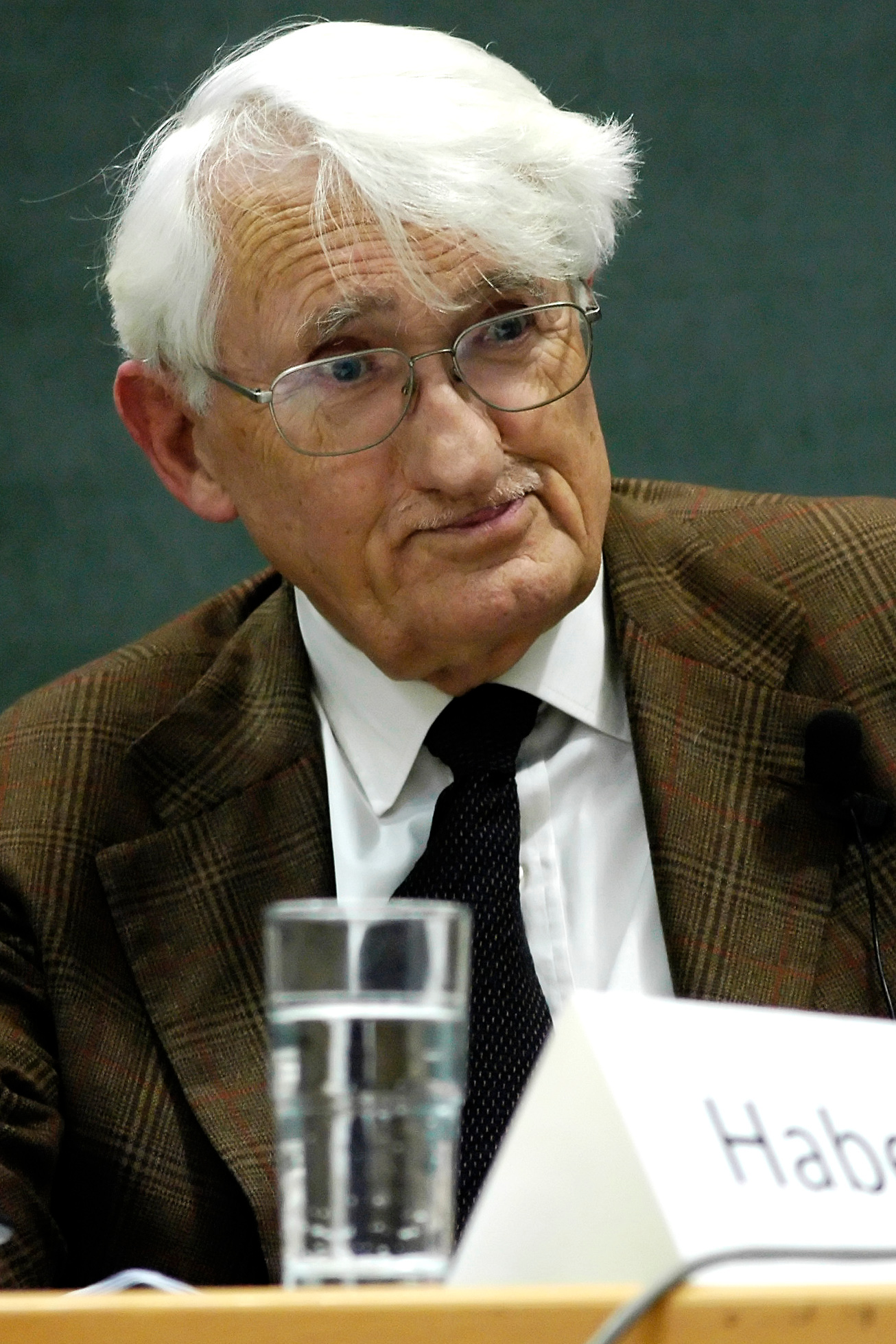Suggested Topics within your search.
Suggested Topics within your search.
demokracia
2
Exclude matching results
politika
2
Exclude matching results
spoločnosť
2
Exclude matching results
democracy
1
Exclude matching results
europeizácia
1
Exclude matching results
európska integrácia
1
Exclude matching results
európske právo
1
Exclude matching results
kapitalizmus
1
Exclude matching results
medzinárodné právo
1
Exclude matching results
nemecká filozofia
1
Exclude matching results
pragmatika
1
Exclude matching results
právny štát
1
Exclude matching results
rule of law
1
Exclude matching results
sociolingvistika
1
Exclude matching results
sociálna komunikácia
1
Exclude matching results
sociálne interakcie
1
Exclude matching results
spoločenské vedy
1
Exclude matching results
ústava
1
Exclude matching results
ústavné právo
1
Exclude matching results
ľudské práva
1
Exclude matching results
Jürgen Habermas
 Jürgen Habermas ( , ; ; born 18 June 1929) is a German philosopher and social theorist in the tradition of critical theory and pragmatism. His work addresses communicative rationality and the public sphere.
Jürgen Habermas ( , ; ; born 18 June 1929) is a German philosopher and social theorist in the tradition of critical theory and pragmatism. His work addresses communicative rationality and the public sphere.Associated with the Frankfurt School, Habermas's work focused on the foundations of epistemology and social theory, the analysis of advanced capitalism and democracy, the rule of law in a critical social-evolutionary context, albeit within the confines of the natural law tradition, and contemporary politics, particularly German politics. Habermas's theoretical system is devoted to revealing the possibility of reason, emancipation, and rational-critical communication latent in modern institutions and in the human capacity to deliberate and pursue rational interests. Habermas is known for his work on the phenomenon of modernity, particularly with respect to the discussions of rationalization originally set forth by Max Weber. He has been influenced by American pragmatism, action theory, and poststructuralism. Provided by Wikipedia
-
1
-
2
-
3
-
4
-
5
-
6
-
7
-
8
-
9
-
10